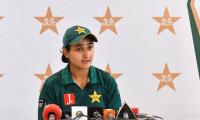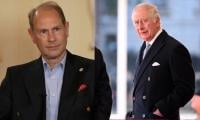London: The British government said on Sunday it will permit outdoor non-religious wedding ceremonies in England and Wales for the first time, boosting a sector hard-hit by the pandemic.
Up to now, England and Wales have only allowed Jewish and Quaker weddings outdoors, while others have to marry in a room or a fixed permanent structure. Scotland does allow outdoor weddings.
Justice Minister Robert Buckland told Sky News the reform gave “greater flexibility” for weddings to “have more guests in a safe way”. Under the new rules, from July 1 people in England and Wales will be able to have non-religious weddings and civil partnership ceremonies outside or “under a partially covered structure” at approved venues such as hotels, the Ministry of Justice said.
The rules are temporary, running to April next year, though the government said it would consult on whether to make them permanent. It called this a “boost to the wedding sector”, allowing all aspects of weddings to take place outdoors for the first time.
The rule change provides more flexibility “especially during the pandemic,” the government said, although its commitment to change the rules predates the virus. Wedding organisers and owners of venues have complained that restrictions on celebrations during the pandemic have made their businesses unviable.
Wedding planner Sarah Haywood, spokeswoman for the UK Wedding Taskforce campaign group, tweeted: “Some good news! Let’s keep it coming”. The government said it was considering further broadening the rules on weddings including allowing a wider range of locations and for weddings to be held remotely “in a national emergency”.
Prime Minister Boris Johnson, who himself got married in May, delivered welcome news to couples this month when he scrapped a 30-guest limit on weddings, with permitted numbers now dependent on the size of premises.
However guests are still not allowed to dance at weddings. A few weeks ago, New Delhi’s crematoriums were operating around the clock dealing with Covid-19 victims. Now the Indian capital’s shopping malls and markets are buzzing again.
But doctors are worried that India is letting its guard down again, just like in January and February before a devastating coronavirus surge that led to a near-collapse of the healthcare system. Clutching a bag of clothes as she shopped with her new husband at Delhi’s busy Select City Walk mall, Surili Gupta said she was “fed up being cooped up inside”.
“I needed this break, for how long you can remain locked up?” the 26-year-old sales executive told AFP as she waited for a table at the mall’s packed food hall. “The coronavirus is not going any time soon, so one has to learn to live with it. I am sure with the vaccinations and all, we will be fine.”
Behind her, a big weekend crowd chatted and laughed over Indian dosas and Chinese noodles, paying scant regard to public announcements reminding them about social distancing and wearing masks.
A couple queueing at a popular burger joint squabbled, masks hanging from their faces. Mall staff performed perfunctory temperature checks and reminded people to sanitise their hands.
Not far away, shoppers thronged the open-air warren of shops and stalls at Lajpat Nagar market, bargaining for scarves, bangles and cheap cosmetics. There was lively trade for food vendors, who sold kulchey-chholey — flatbread served with spicy chickpeas — and other favourites to punters, masks dangling as they ate.
“I would not have come today but it was very urgent,” Prerna Jain, 21, a college student who had come with her mother, told AFP. “My cousin is getting married and I needed to buy some stuff. I know it’s not yet safe but what can I do? This (event) is equally important.”
Delhi, a megacity of 20 million people, saw horrendous scenes in April and May when coronavirus cases went through the roof, as they did across the country. Meanwhile, Russian workers who refuse Covid-19 vaccinations in areas where they are compulsory could be forced to take unpaid leave, the labour minister has warned as infections spike and inoculation drives slow.
Anton Kotyakov’s comments come as Moscow and other cities introduce an array of curbs, including for the Euro 2020 football tournament. “If the health authorities in a region make vaccination mandatory for some categories of workers, an unvaccinated employee could be suspended,” Kotyakov said in comments posted Sunday to a state-run channel on the Telegram messaging app.
Liberal Justice Elena Kagan on Sept. 13, 2016. — Slate website WASHINGTON: U.S. Supreme Court justices, wading back...
A representational image of inmates behind jail bars. — Unsplash/FileMOSCOW: A Russian court on Wednesday ordered...
Sudanese soldiers guard the surrounding area of the UNMIS compound in El-Fasher, the administrative capital of North...
US quietly shipped ATACMS missiles to Ukraine. — Report news agencyWASHINGTON: The United States in recent weeks...
US President Joe Biden during his address in California. — AFP FileWASHINGTON: President Joe Biden signed a...
The World Meteorological Organisation flag. — AFP FileGENEVA: Global temperatures hit record highs last year, and...







